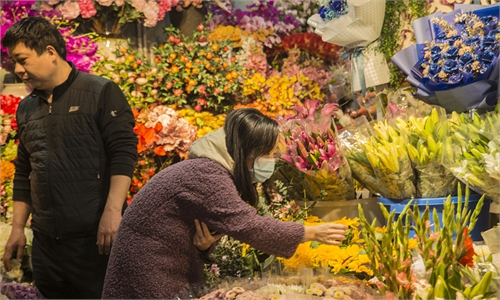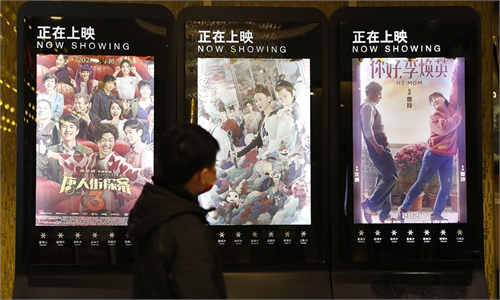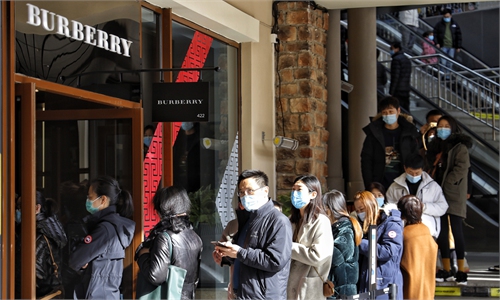China sees consumption boom during 2021 Spring Festival
People splash out on shopping, dining, playing
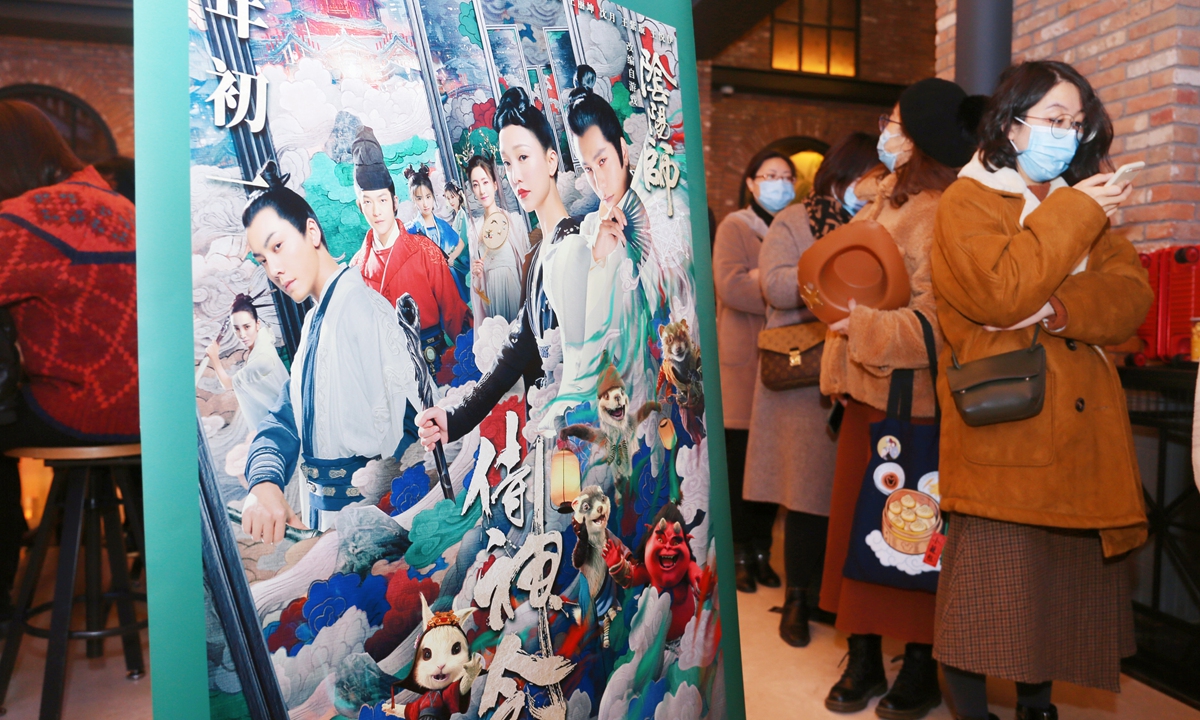
Moviegoers line up to watch fantasy film The Yinyang Master on Wednesday in Shanghai. Chinese box office hit a new record of more than 7.5 billion yuan ($1.16 billion) during the Spring Festival holidays. Photo: IC
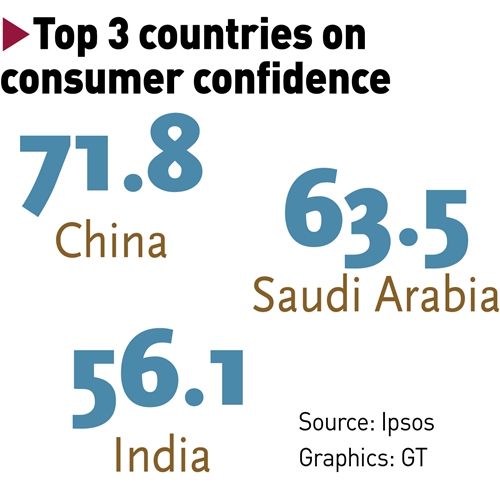
Graphics: GT
From heated local tourism to surging dining and online shopping, China saw a consumption boom that was above the expectations of many during the weeklong Spring Festival holiday, and experts said the trend should continue after COVID-19 vaccines become widely available in mid-2021.
The boom was not all usual, particularly after China's efforts to discourage people from going back home during the Spring Festival to prevent a resurgence of the pandemic - a move that raised some worries about lackluster consumption.
The positive results, however, were better than many people thought and are read as another signal of China's economic strength.
In the tourism sector, which many believed would take a serious hit from the stay-put order, certain cities still saw tourist numbers surge compared with last year's Spring Festival holiday.
Beijing's key tourism sites, for example, received 3.7 times as many people as they did in last year's Spring Festival holiday, while their revenues skyrocketed nine times year-on-year and were even 1.9 times higher than the 2019 holiday.
Shanghai's tourist numbers almost recovered to the level seen in 2019, showing that the tourism market almost returned to pre-pandemic level.
The booming tourism business greatly boosted hotel room bookings, as many hotels, such as those in suburban Beijing, were fully booked for the holiday. Rooms in Shanghai's Disneyland were also entirely booked for this year's New Year's Eve, according to data sent by tourism service provider qunar.com to the Global Times.
This apparently shows a trend of improving after China's tourism market slumped amid the coronavirus hit.
Tourism during the holiday showed a significant increase from last year, and it almost reached 90 percent of the 2019 level in terms of visits and revenue, Xu Xiaolei, marketing manager at China's CYTS Tours Holding Co, told the Global Times on Thursday.
"With the development of vaccines and an increase in epidemic prevention and control measures in place this year, we expect tourism for the coming Qingming Festival holiday may be the same as 2019," Xu predicted.
Consumers also spent lavishly on other activities such as dining and shopping during this year's Spring Festival. According to data monitored by the Ministry of Commerce, China's key retail and dining enterprises saw revenues grow 28.7 percent year-on-year to 821 billion yuan ($127 billion) from February 11-17.
A Shanghai resident surnamed Dai said that his family dined out at restaurants three times during this year's Spring Festival holiday, spending 1,500 yuan on food each time.
"We usually wouldn't spend so much dining out during Spring Festival, but as we canceled travel plans this year, we dined out more to compensate," he told the Global Times.
The rising spending on tourism and other activities came as sporadic outbreaks of the coronavirus were put successfully under control. China has now cleared all high-risk COVID-19 areas.
Cong Yi, a professor at the Tianjin University of Finance and Economics, said that China has around 400 million people with middle-class or higher income levels, which shows a clear trend of consumption structural upgrading.
"We believe that China is a market with massive potential and resilience, with a solid consumer base and an upgrading trend," Cong told the Global Times.
Cong predicted that China's consumption would show a strong rebound this year, particularly after COVID-19 vaccines become widely available in May or June.
"After the pandemic is put under control completely, all sectors including consumption and investment would show a robust recovery in China," he said.
China's unexpectedly strong consumption growth was also in stark comparison to the US market, which presented a gloomy picture of consumer sentiment, global research data showed.
Ipsos' February index of global consumer confidence noted that China's consumer index surged 6.5 points year-on-year to 71.8 for February 2021, the largest growth among the 24 monitored economies. In comparison, the US' consumer sentiment index decreased 12.6 in February from one year earlier, the largest drop among all countries.

